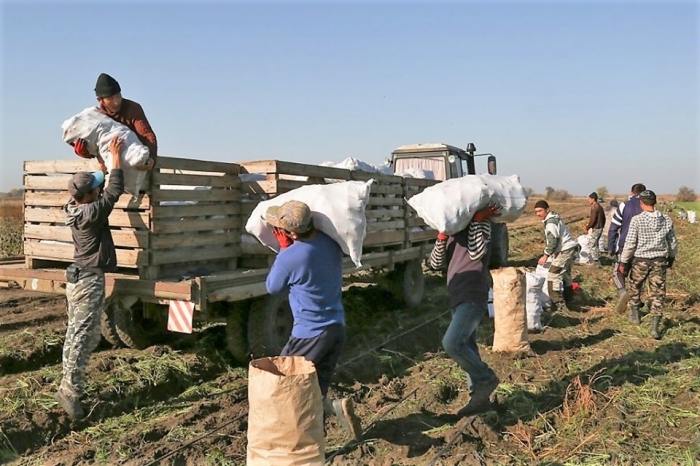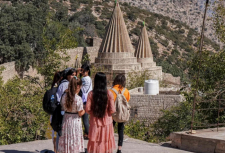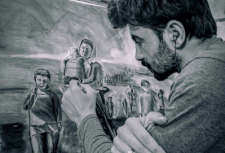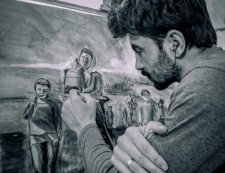Yazidi farmers return to their farmlands

Displaced Yazidi farmers in the Iraqi city of Dohuk have been reunited with neighboring farms after being separated for several weeks due to the blockade.
Due to the coronavirus, internally displaced persons in Dohuk were locked in their camps for more than 40 days. But local authorities again granted them access to the land around their camps.
Since then, hundreds of displaced Yazidis have returned to farms to work on their land.
Among them is hawas Zeido, who says that the way farmers work and interact with each other has changed.
"You can feel that the situation with the crown (the virus) is still present here," he says.
"We are still holding at a distance of two meters and do not work close to each other," adds Sado.
According to the Council for relief and humanitarian Affairs in Dohuk Governorate, more than 594,000 refugees and internally displaced persons live in 21 different camps throughout Dohuk.
Most of the displaced people in Dohuk are Yazidis from Shangal. Displaced farmers were allowed to return to their lands in Dohuk a few days after the province celebrated its declared victory over the virus.
Farming and, if possible, animal husbandry is the only source of income for the Yazidi population. The Yazidi population lives or rather survives thanks to humanitarian aid from European countries but according to our sources, as we know, the lion's share is stolen by local authorities and the administration.
Ezidxan
Tags: #yazidisinfo #ezidi #news #ngo #humanrights
Yazidi farmers return to their farmlands

Displaced Yazidi farmers in the Iraqi city of Dohuk have been reunited with neighboring farms after being separated for several weeks due to the blockade.
Due to the coronavirus, internally displaced persons in Dohuk were locked in their camps for more than 40 days. But local authorities again granted them access to the land around their camps.
Since then, hundreds of displaced Yazidis have returned to farms to work on their land.
Among them is hawas Zeido, who says that the way farmers work and interact with each other has changed.
"You can feel that the situation with the crown (the virus) is still present here," he says.
"We are still holding at a distance of two meters and do not work close to each other," adds Sado.
According to the Council for relief and humanitarian Affairs in Dohuk Governorate, more than 594,000 refugees and internally displaced persons live in 21 different camps throughout Dohuk.
Most of the displaced people in Dohuk are Yazidis from Shangal. Displaced farmers were allowed to return to their lands in Dohuk a few days after the province celebrated its declared victory over the virus.
Farming and, if possible, animal husbandry is the only source of income for the Yazidi population. The Yazidi population lives or rather survives thanks to humanitarian aid from European countries but according to our sources, as we know, the lion's share is stolen by local authorities and the administration.
Ezidxan
Tags: #yazidisinfo #ezidi #news #ngo #humanrights


























